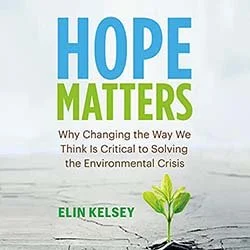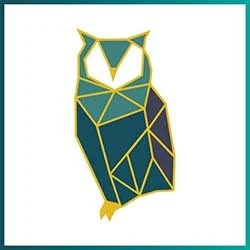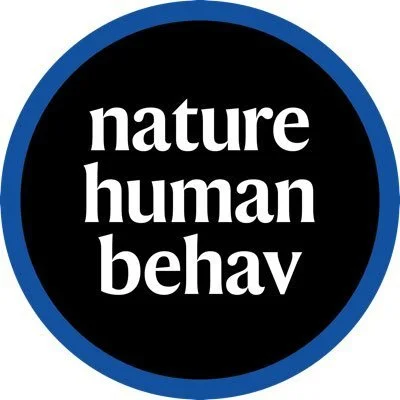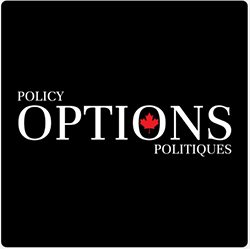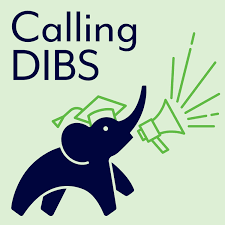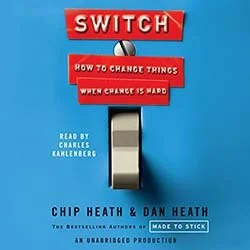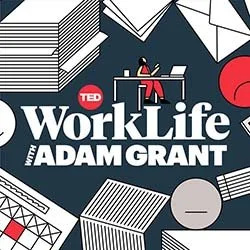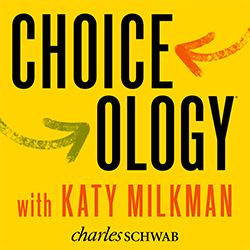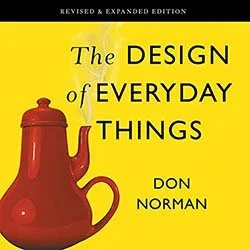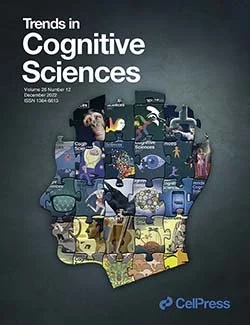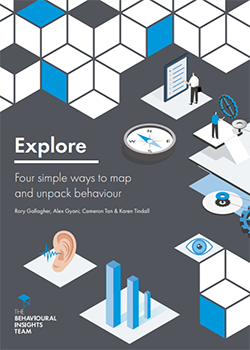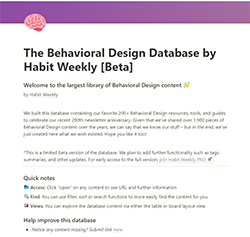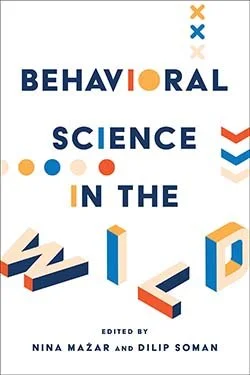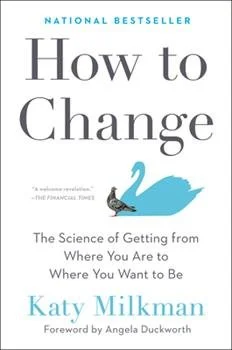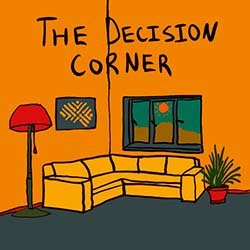Photo by Eyestetix Studio on Unsplash
The end of the calendar year often offers a chance for us all to slow down, enjoy time with family and friends, cozy up with a blanket and, hopefully, relax.
As we start to take stock of the past year, our BI community has been reflecting on the articles, podcasts, videos, etc. that captured our interest, kept us asking hard questions, and inspired us to continue applying BI to tough challenges.
We've compiled these into a list of recommendations for you to enjoy this holiday season. We hope that they provide some enjoyment, allow you to reflect on the year past, or provide inspiration for the year ahead.
Enjoy, and happy holidays!
The BI Backgrounder
Armchair Expert: Daniel Kahneman
“This is a fantastic conversation with Daniel Kahneman that gives an overview of some of his most important work.” - Jared Pickett, Behavioural Science Advisor, Behavioural Science Aotearoa
Applying BI to the Climate Crisis
Hope Matters: Why Changing the Way We Think Is Critical to Solving the Environmental Crisis by Elin Kelsey
“Behavioural science research seems to be demonstrating more and more that people are more likely to change environmental behaviours when they encounter messaging that is based on hope or optimism or that provides clear, achievable ways people can make a difference. This book looks at how focusing on hope can lead to action.” - Sharilynn Wardrop, Protected Areas Ecologist, BC Parks
Policies for Adapting to the ‘New Normal’ of the Anthropocene by Andrew J. Hoffman, P. Devereaux Jennings, & Nicholas A. Poggioli in Behavioral Scientist
&
To Select Effective Interventions for Pro-Environmental Behaviour Change, We Need to Consider Determinants of Behaviour by Anne van Valkengoed, Wokje Abrahamse, & Linda Steg in Nature Human Behaviour
“Following on the heels of COP 27, these two articles address our present environmental challenges; however, each with a very different focus. The first article argues that we need to shift our dominant value systems and outlines some ideas for how this can be accomplished. The second looks at strengthening interventions for individual pro-environmental behaviour by linking key behavioural determinants to interventions.” - Anna Burrowes, Methods Specialist, BC Behavioural Insights Group
Applying BI to Public Policy & Public Health
Nudging the Way to Better Public Policy by Andrea Lawlor & Vince Hopkins in Policy Options
“For a well-crafted summary of the evolution of behavioural insights (BI) in Canada and its widespread application at all levels of government look no further than this recent article from Professors Vince Hopkins and Andrea Lawlor. I especially love the shout-outs to leaders in the Canadian BI movement such as UofT’s Behavioural Economics in Action at Rotman (BEAR), UBC’s Decision Insights for Business and Society (UBC-DIBS), and provincial groups like the Ontario Behavioural Insights Unit (BIU) and BC Behavioural Insights Group (BC BIG). This article definitely isn’t ‘greige’.” - Heather Devine, A/Director, Behavioural Science Office, Public Health Agency of Canada
Calling DIBS Episode 36: Using Behavioural Insights to Tackle Public Health Challenges
“This episode discusses how BI can be used within the public health context. I have a background in public health and so I am very interested in learning about new BI research and projects in this field.” - Shannon McDonaugh, Program Manager, Behavioural Insight at the NS Outpost for Public Sector Innovation with the Government of Nova Scotia
Applying BI to Our Lives & Our Work
Switch: How to Change Things When Change is Hard by Chip Heath and Dan Heath
“In what may be the best book on behavioural science, brothers Chip and Dan ask why it is so hard to make change in our companies and communities and how can we make change last?” - Jared Pickett, Behavioural Science Advisor, Behavioural Science Aotearoa
WorkLife with Adam Grant: How to Rethink a Bad Decision
“We all make bad decisions and sometimes we stick with them even when we know they’re wrong – why? This episode investigates the psychological trap called “escalation of commitment” and the emotional drivers behind rationalizing and sticking with a bad decision.” - Alexis Gordon, Methods Specialist, BC Behavioural Insights Group
Choiceology: Mesmerized: Why is it so Difficult to Separate Correlation from Causation?
“We are constantly exposed to new claims, theories, and speculations. Whether it is in the news, on our social media, or from our family and friends – we are constantly receiving conflicting information about “scientific” research. This episode of Choiceology looks at the slippery problem of separating correlation from causation and provides a helpful reminder to think critically about the information presented to us.” - Lindsay Miles-Pickup, Acting Project Director, BC Behavioural Insights Group
The Design of Everyday Things by Don Norman
“As I reflect on the upswell in calls to adapt our behavioural design processes to include those we seek to design interventions for—including an excellent keynote by Dr. Crystal Hall at BIG Difference BC 2022—it is apparent that learning more about human-centred design would help augment my work. Written by the cognitive scientist/usability engineer who popularized the term ‘user-centred design’, The Design of Everyday Things is not only a fundamental book in any design space but also accessible and enjoyable!” - Steph Wilkie, Knowledge Translation Strategist, BC Behavioural Insights Group
How to Make BI Better
What Would Make Cognitive Science More Useful? by Neil A. Lewis, Jr., in Trends in Cognitive Sciences
“This short paper talks about how we can make cognitive science (these ideas are also important for behavioural science) more useful by involving more diverse participants and stakeholders than we have in the past.” - Jared Pickett, Behavioural Science Advisor, Behavioural Science Aotearoa
Antiracist Applied Behavioral Science: Using Our Tools to Confront Structural Racism by Crystal Hall
“A highlight of the year for me was Dr. Crystal Hall’s keynote address at BIG Difference BC 2022. After providing a wonderful introduction to BI, warts and all, Dr. Hall provided actionable recommendations for how to make our practice of BI antiracist. These takeaways were re-emphasized for me when reading Stephanie Papik’s blog post reflecting on the keynote address.” - Kirstin Appelt, Research Director, UBC Decision Insights for Business & Society
Guides for How to Use BI
The 5-Step Approach to Evaluation: Designing and Evaluating Behaviour Change Interventions by the Scottish Government
“This is a concise and accessible guide to the key steps and tools for planning and evaluating the impact of a behaviour change intervention. It’s a great primer on how to create a logic model, identify indicators, and conduct your evaluation.” - Fritha Munday, Senior Behavioural Scientist, BC Behavioural Insights Group
Explore: Four Simple Ways to Map and Unpack Behaviour by the Behavioural Insights Team
“This is an excellent resource for exploring behaviour in a given context. The digestible field guiderovides helpful guidance, and the full handbook provides a deeper dive into all the ways we can uncover realities and deeply understand a system.” - Stina Grant, Methods Specialist, BC Behavioural Insights Group
The Behavioral Design Database [Beta] by Habit Weekly
“This database has an incredible amount of curated behavioural science goodness in one spot. This collection of resources, tools and guides will surely have some content for any BeSci enthusiast.” - Stina Grant, Methods Specialist, BC Behavioural Insights Group
Greatest Hits from a Year of Choice Reads
Behavioral Science in the Wild by Nina Mažar and Dilip Soman
Written by two Canadian behavioural science stars, Dr. Nina Mažar and Dr. Dilip Soman, Behavioral Science in the Wild helps managers implement behavioural research findings in their own workplace operations and apply them to business or policy problems. This is the second in the Behaviourally Informed Organizations series. Mažar spoke about this work at the UBC-DIBS seminar in March; watch the video.
The Person You Mean to Be: How Good People Fight Bias by Dolly Chugh
In this video from Belonging at Yale, host Dr. Laurie Santos speaks to Dr. Dolly Chugh about recognizing bias as a necessary element of becoming a “goodish person” and covers topics such as growth mindset, privilege, the “hard knock life effect" and more.
How to Change: The Science of Getting from Where You Are to Where You Want to Be by Katy Milkman
Drawing on Dr. Katy Milkman's original research and the work of her world-renowned scientific collaborators, How to Change shares strategic methods for identifying and overcoming common barriers to change, such as impulsivity, procrastination, and forgetfulness.
The Decision Corner: What We Say Versus What We Do
Dr. Kate Laffan delves deep into changes we can bring about on an individual and organizational level to benefit the environment, including topics like implemetation intentions, green defaults, and pro-social incentives.





